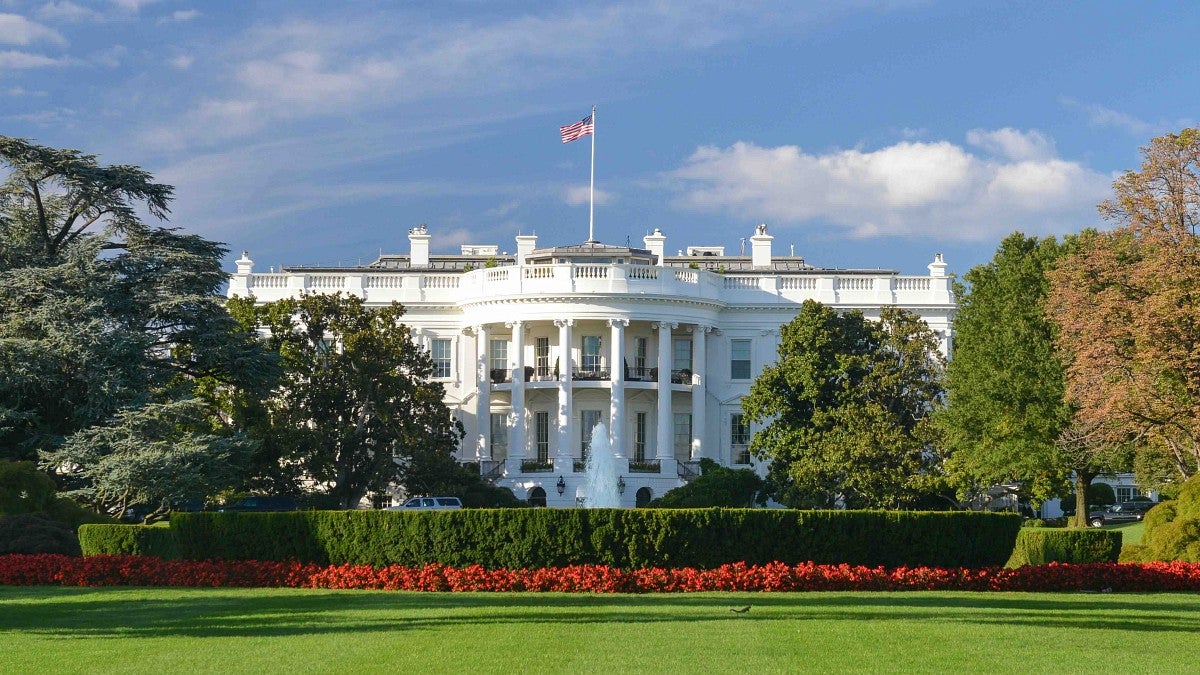
August 1, 2024 - 12:00pm
Ideas of what constitutes “normal” in the exercise of presidential duties have changed in recent years, but a new University of Oregon study indicates most Americans still support traditional norms, at least until they run up against partisanship.
Presidential norms are behaviors and expectations accepted as appropriate and help define what is considered presidential, whether swearing in on a Bible during an inauguration ceremony or visiting the sites of natural disaster.
How the public reacts to a violation of those presidential norms, such as avoiding direct communications with the public or hiring close relatives for high-ranking administrative positions, is associated with a person’s partisanship. That’s according to a study by Chandler James, a political science assistant professor in the UO College of Arts and Sciences.
The research was recently published in Presidential Studies Quarterly.
“There's been a lot of talk about these norms in the public, in the media, but very little of it has been empirically rooted,” James said. “My research uses surveys, experiments and statistical methods to make sense of public attitudes towards presidential norms. In this paper, I propose a framework for understanding them and making sense of how the public behaves or thinks about these things.”
Through surveys consisting of nationally representative samples, James found that Americans mostly support presidential norms, but partisan framing and compelling rhetoric can undermine or erode the public’s support of them.
“I wanted to check and see whether or not the public actually stood behind what many journalists, politicians and political scientists describe as presidential norms,” James said.
Presidential norms are an integral part of the modern presidency. James introduces two subcategories of presidential norms: structural and public presentation. Structural norms are related to the functioning of the government, such as facilitating a peaceful transfer of power, not hiring close relatives for high-ranking positions, and publicly releasing tax returns.
“They’re important, especially if broken,” James said. “It could be quite a significant event in politics; they are very consequential.”
According to James, public presentation norms relate to how the president engages with the public. That includes delivering the State of the Union address before Congress as a speech, saluting military personnel when boarding and departing Air Force One, and holding regular press conferences.
In recent years, numerous violations of presidential norms have marked the U.S. political climate. James referenced former President Donald Trump’s statements that the 2020 election was rigged. Although Trump is known as a prolific norm violator, President Joseph Biden has also notably deviated from tradition by holding the fewest press conferences since former President Ronald Reagan.
To gauge public sentiment on these norms, James first surveyed a nationally representative sample of 788 Americans eligible to vote during the week of Jan. 17, 2022. He asked participants questions about their support for various norms, as well as demographics and political attitudes.
The survey showed that Americans strongly support presidential norms, with most norms receiving more than 50 percent support and structural norms reaching at least 71 percent. The presidential norm that presidents should not use public office for private gain received the most support.
James conducted another survey of 996 participants in March 2023 to explore how norm violations resonate differently for Democrats and Republicans. The participants responded to questions about potential norm violations and different arguments used to explain lying to the public.
For example, hypothetically, a president could lie for national security, to get reelected, or to get laws passed. He then reframed the questioning to reflect aims and pursuits as a reason to break norms: Presidents should sometimes violate political norms to challenge fake news, combat the deep state, and appoint like-minded judges in federal courts.
The public’s tolerance of a presidential norm violation depends on the aim of what the president seeks to achieve, according to James’ research. For example, 84 percent of Republicans agreed with the statement “Presidents should sometimes violate presidential norms to challenge fake news,” compared to 78 percent of Independents and 66 percent of Democrats. And 74 percent of Independents agreed that presidents should sometimes violate presidential norms “to combat the deep state,” while only 64 percent of Democrats and 57 percent of Republicans agreed.
“The results show substantial agreement among Americans on foundational presidential norms,” James said. “However, they also show a sizeable amount of variation in that support. On average, Democrats support structural norms more than Republicans. Furthermore, support can be eroded using compelling rhetoric or in pursuit of a worthy end.”
— By Henry Houston, College of Arts and Sciences
